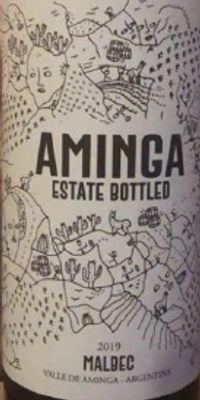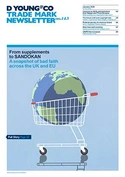Bottle labels: copyright infringement and passing off
Protection is available to artists, where the copying is substantial, and where they have generated goodwill in relation to their art. A recent decision considers some interesting points including whether artists can generate goodwill in relation to works of art, what circumstances constitute joint tortfeasorship and what level of damages might be appropriate when an artistic work has been copied and applied to a product.
Background
Shantell Martin is a world-renowned artist, known for her distinctive line drawings (most notably created for an exhibition in Buffalo, New York):

Ms Martin also designs, sells and endorses products which feature the artwork, or extracts from it, on them. She has an extensive online presence and reputation.
In 2020, GM Drinks began importing AMINGA wine from Argentina into the UK, the wine had a decorative label that was similar to (and had taken certain bits from) Ms Martin’s artwork, below:

Fans of Ms Martin contacted her to express their surprise that these bottles were not attributed to her. Ms Martin contacted GM Drinks, which changed the label (twice). However, she commenced proceedings in 2022.
Proceedings
The key claims brought by Ms Martin were:
- “Primary” copyright infringement (for importing and issuing copies of a work to the public)
- “Secondary” copyright infringement (for possessing and dealing in copies of a work)
- Passing off
Ms Martin brought the claim against the winery, the importer and a director of the importer.
Decision: direct liability
On copyright infringement it was held that:
- The first label clearly copied a substantial part of the work as it reproduced the parts which were expressions of Ms Martin’s intellectual creation.
- Even though the second label was an “endeavour to avoid infringement”, it was not a substantial copy of the work and so was not infringing. The third label was even further away.
This meant that the importer was liable for primary infringement (importing and issuing of copies). The importer was only liable for secondary infringement for the period after they received the letter before action from Ms Martin, as liability in this regard requires knowledge of the infringement. The winery and the director of the importer were not directly liable for infringement.
On passing off it was held that:
- Ms Martin had established considerable reputation in her artistic style, which she exhibited in the UK. She also collaborated with others to apply the style on physical products sold in the UK. Therefore, she had considerable goodwill.
- There was evidence that fans had been misled, in relation to the first label.
- Damage then followed naturally.
The importer was liable for passing off. The winery and the director of the importer were not directly liable for passing off.
Decision: joint tortfeasorship
The importer was the only defendant actually committing the acts of infringement in the UK. However, Ms Martin also claimed that the winery and the director of the importer were jointly liable on the basis that they had “actual or constructive knowledge of the essential facts which made the act of the primary wrongdoer tortious”. On the facts, the judge held that both were liable for copyright infringement for the period after receipt of Ms Martin’s letter before action; given that they did have notice of the facts from this point on. They were not jointly liable for the passing off claim as this was not properly made out in the letter.
Remedies
The final point to be decided was the level of damages payable. In relation to copyright, no damages were awarded for innocent infringement (the period before the first letter before action). The judge was clearly not in agreement with the $200,000 claimed by Ms Martin (which she said was reflective of the fee she would normally command for this type of commission). The parties were given a short period to attempt to settle, failing which the matter will be transferred to the small claims track for the quantum to be decided.
In short
This case is a useful reminder that creatives can enforce their valuable IP where it has been copied. Importers need to be careful as they may attract liability even where they are not actually applying the infringing work to the products. It is also a reminder that liability can attach to entities that are not directly involved in an infringement, if they are complicit in any wrongdoing.
It will be particularly interesting to see the decision on damages (should the parties not settle before).
Case details at a glance
Jurisdiction: England & Wales
Decision level: High Court (IPEC)
Parties: Shantell Martin v (1) Bodegas San Huberto Sa, (2) GM Drinks Limited, (3) Marc Patch
Date: 24 July 2025
Citation: [2025] EWHC 1827 (IPEC)
Decision: dycip.com/2025ewhc1827-ipec


